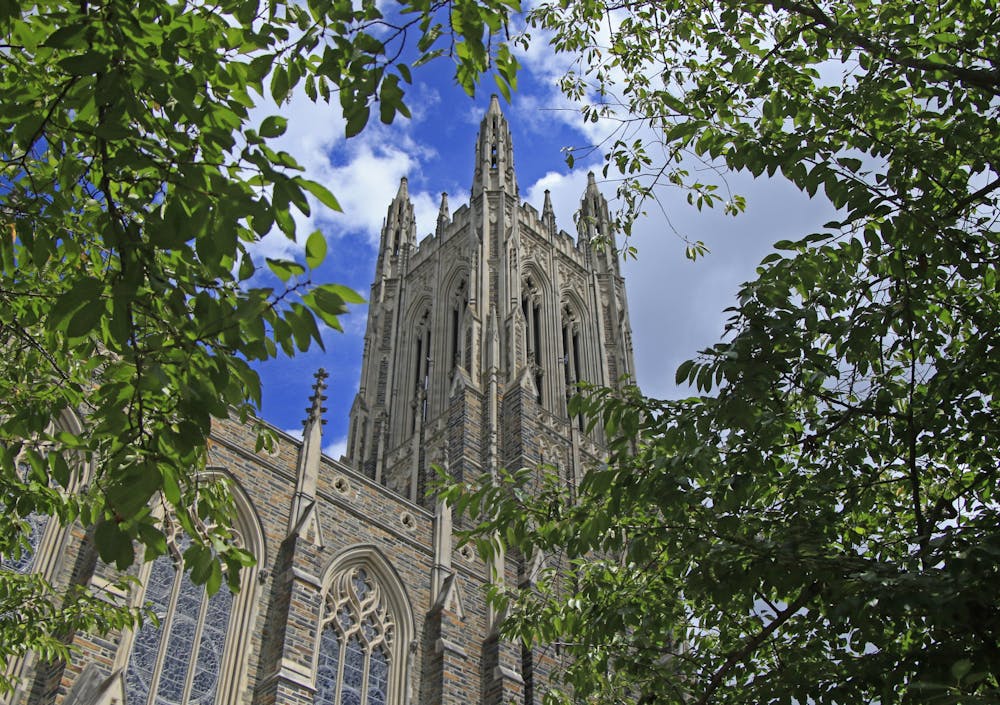One year ago, the Arts and Sciences Council approved the Asian American and Diaspora Studies (AADS) minor.
The first of its kind in the American South, the minor is led by Esther Kim Lee, AADS director and professor of theater studies, international comparative studies and history. The minor requires four electives and one introductory course — either Introduction to Asian American History or Introduction to Asian American and Diaspora Studies.
Lee shared how, after only a year, the program has not only captured national attention, but been embraced by Duke students and alumni.
According to Lee, all four of the new AADS courses have filled up for spring 2023 — some even have waitlists. Lee said that the courses’ popularity is a promising sign that student demand for AADS is high. While there are only five students pursuing the minor, Lee anticipates an uptick in the near future.
One of those five is junior Huiyin Zhou, an international student and Chinese feminist organizer. Zhou believes that the minor would benefit from a boost in faculty hires. She would also like to see funding for students to pursue projects and attend conferences.
Moving forward, Zhou is curious to see the balance AADS will have with meeting institutional needs as well as student ones. The approval of the AADS minor was a result of generations of student activism, including the Chinese Student Association, founded in 1971, and the Asian Students Association (ASA), founded in 1981.
In particular, Zhou is interested in the roles AADS and the Asian American Studies Working Group (AASWG) will play in advocating for Asian American students. Since its inception in 2016, ASSWG played a crucial role in the creation of the AADS program and has pushed for the establishment of an Ethnic Studies department.
“[AASWG] was trying to serve the gap when we didn’t have AADS, but now that AADS is getting more and more institutionalized … what [are] ASSWG’s positions?” Zhou said.
Nevertheless, students like Zhou are excited about the minor’s future.
“It's been really great to be able to take AADS classes because it feels like AADS is starting to offer a very diverse set of classes in different disciplines,” she said.
Looking forward, Lee would like to have more course offerings in the social sciences and hopes to hire more faculty, with hopes of establishing a more interdisciplinary curriculum. Lee also pointed to the need for a center on campus for Asian American students.
“I think there's gonna be so much synergy between the center and the [AADS] program, the academic and the student affairs, that it could be a great partnership between the two,” she said.
In the meantime, AADS is attempting to leverage its position in the South and raise awareness for Asian American studies in the region. For instance, this past fall Duke and the University of North Carolina at Chapel Hill hosted the inaugural southeastern regional conference on Asian American studies.
Lee views the minor’s existence in the South as an exciting opportunity to re-envision Asian American studies in a region with an increasing Asian population. She noted that the AADS program can influence other initiatives to make Asian American students feel more seen and welcomed at Duke.
Vanderbilt University recently launched its own AADS program, which includes both a major and minor. While Duke was not directly involved with Vanderbilt’s efforts, Lee said the inception of Duke’s AADS program may have pushed Vanderbilt to adopt its own.
“I have a feeling that when a major school like Duke does it, then people pay attention,” she said.
Get The Chronicle straight to your inbox
Sign up for our weekly newsletter. Cancel at any time.

Michael Ramos is a Trinity first-year and a staff reporter of The Chronicle's 118th volume.

